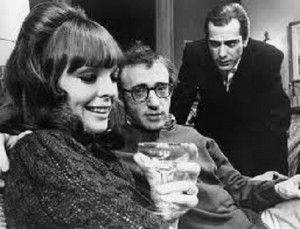Movie article
Life can be so painful, we may curse it, or in order to survive, try and laugh at it. Sometimes, life can’t be laughed at—there is no doubt about that. But if people can handle their pain by laughing at it, that is a coping mechanism, even as the heart aches. The proverb says, “Even in laughter, the heart aches”. So, if we can, let’s have a laugh at life even if it hurts.
Actually, we have been laughing. Hollywood has been making films with this modus-operandi for years as people go and watch them in truckloads. Are we any better for it?
Let’s see from five examples of comedy:
Mouse Hunt (1997, USA). On the lighter side is this domesticated family comedy featuring a mouse that can’t be caught by a trap despite the unfortunate key characters using more traps than normal and utilizing every trick in the book. Mice can be clever once they know they are in the firing line.
We all know about this kind of domesticated stress. At the movies, the evasive mouse may be hilarious, but not if you happened to watch this when there was a mouse problem at your home.
An innocuous comedy all the same that might have made us laugh at one domestic issue that we may or may not want to have a laugh at.
Annie Hall (1977, USA). In a Woody Allen comedy, how relationships work, and don’t work, are bread and butter.
To be honest, I didn’t find this sophisticated movie funny, but at least amusing.

Alvin (Woody Allen) tries to understand the meaning of his relationship with his girlfriend (Diane Keaton) while the audience is thinking, what is the point of their relationship anyway? This subtle burn comedy is actually very close to the bone. The heart is aching.
Dr. Strangelove (1964, UK). We can’t laugh at war and the atomic bomb that wrecks destruction on life, and according to this film, war is absurd, but always happens, somewhere, somehow. Resigned to war’s inevitability and war which causes so much despair, they poke a joke at it. The heart is aching, again.
As Good as it Gets (1997, USA). This is my favorite romantic comedy of the last twenty years as it is charmingly true. In relationships, couples have a certain amount of expectation, but what happens if both of you are bent out of shape?
Something’s got to give so you both can get along cordially and enjoy life with one another, if possible.

This goes for any relationship, really. In this comedy my heart ached, but with a nice glow, though.
Me, Myself and Irene (2000, USA). Controversial Jim Carey comedy because it deals in unflattering strokes with schizophrenia, or split personality disorder, or whatever Anthony Anderson’s character said, but perhaps the easy going Rhode Island state trooper suffers from the universal condition of being unable to be himself.
For people suffering with a mental illness, it could be painful watching this. Carey’s character goes off his medication and goes wild and unpredictable, which for people who have experienced this sort of thing, may be embarrassing to relive.
This film may be in the category of things some people, and people in empathy, can’t laugh at.
Me, Myself and Irene is one of those borderline comedies, where we don’t know if we should laugh or become outraged. Talk about a crack-up. Comedy hurts, doesn’t it? In this case, yes, but was it even funny?
Throughout the years, we have been better off with many comedies. But with others we are not so well off.
If a comedy ends with insight into characters, we may better understand people generally and their predicaments and the things that cause them to behave and then we may empathize with them. Maybe the funny thing is that understanding people may be stoked by a comedy. Perhaps we shouldn’t be surprised.

